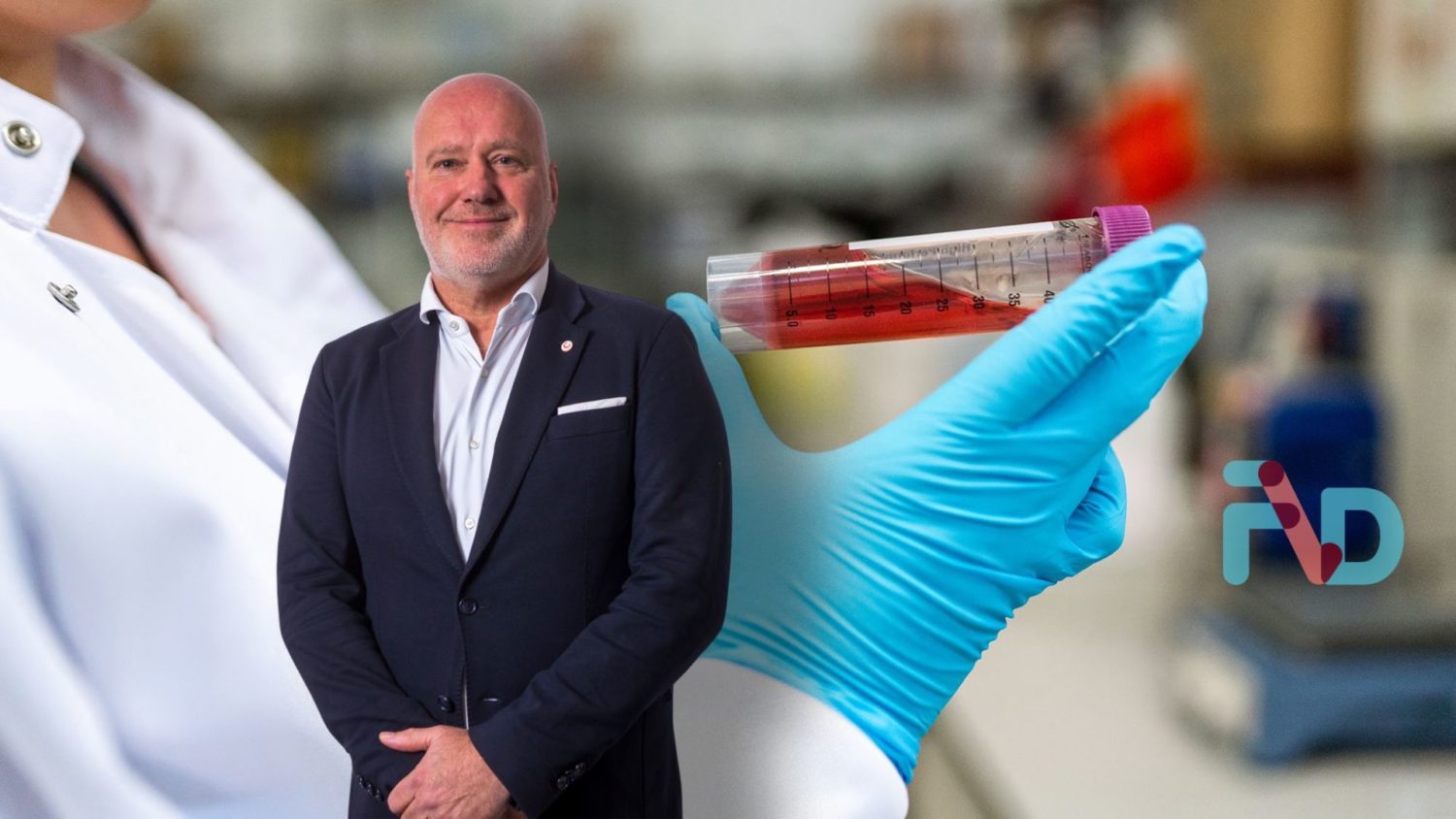
After more than thirty years in business in MedTech & Life Sciences, Ton van den Hoven is far from finished. Indeed, with his current company FlowView Diagnostics, he hopes to enter the market during 2023. "You shouldn't sit behind your desk and think that people need you.
He speaks leisurely and plainly. His words resound with enthusiasm and inspiration. Entrepreneurship fits him noticeably like a glove. My glass is always three-quarters full," says Ton van den Hoven, CEO of FlowView Diagnostics. 'I easily go along with developments and after a setback I don't immediately sit in sackcloth and ashes. My strength lies mainly in making connections with people and establishing a vision of where and why we want to go with a particular technology.'
Faster and more efficient
Indeed, the Utrecht-born De Bilt entrepreneur has proven the latter several times over. In MedTech & Life Sciences, to be precise, the sector in which Ton has been active for over three decades. Currently, the focus is on building FlowView Diagnostics, a start-up from Heerenveen that is developing a decision support platform that can perform blood analyses in minutes. High-quality blood analyses, that is. Based on a refined algorithm that identifies the amount of abnormal blood cells with high specificity and sensitivity.
'The patented algorithm quickly extracts the right information from large amounts of data and thus helps medical specialists detect abnormal cells in the blood at an early stage,' Ton clarifies. 'And thus in making diagnoses and putting together treatment plans faster and more efficiently.'
The technology stems from a collaboration between researchers and clinicians at UMC Utrecht and Radboudumc in Nijmegen. In fact, the collaboration has already resulted in a proof of concept of the software. In early spring 2020, Ton was approached to develop it into a good business case and a company. With the establishment of FlowView Diagnostics, of which Ton is CEO, as mentioned, as the final result.
Flow cytometry
But what clinical issue specifically underlay it? 'To identify disease patterns, large numbers of data sets are examined using flow cytometry,' Ton begins his explanation. 'An existing technology that analyzes blood samples with a laser beam and records data points. One cell can generate as many as five to seven data points. Only: an average blood sample contains about 50,000 cells. And so, just like that, more than 300,000 data points can appear on your screen. And yes, just try to filter out the abnormal cells. For most lab technicians and clinical hematologists, that's almost impossible to do. Hence the development of an algorithm that provides all the supporting information within 15 minutes. Now patients have to wait at least 24 hours for a result. In short, the algorithm has been developed in such a way that the analysis and the appointment with the treating physician can be handled in one hospital visit.'
Demonstrable positive impact
FlowView Diagnostics falls under the umbrella of TVH Business Consultancy, a network organization that Ton started over 30 years ago and which he manages together with his spouse and business partner Saskia van den Dool. With TVH Business Consultancy they focus on the support of especially start-ups in MedTech and Life-Science. From securing funding and formulating or sharpening business plans to support in all kinds of financial matters.
Where his motivations lie? 'I love being involved in technology that solves a real medical problem and has a demonstrable positive impact on patients,' Ton answers immediately. It has brought him a wealth of knowledge, skill and experience over the years. These included senior management positions at Philips Healthcare, Stentor Inc. and Cemax-icon, a company developing innovative solutions for radiology and teleradiology. He was also CEO and co-founder of SurgVision, which in collaboration with UMCG developed an application to visualize tumor cells during operations.
'We sold SurgVision to Italian company Bracco Imaging in 2017,' Ton says. 'I had signed on for three years, but after two and a half years I eventually left by mutual agreement. Because I felt that my "baby" had grown up and, moreover, I wanted to return to the start-up world. Not much later the founding of FlowView Diagnostics followed.'
First entrepreneurial lesson
No, it didn't come to him. That never happens with entrepreneurs anyway, he says. "The first lesson I learned is that you shouldn't sit behind your desk and think that people need you. As an entrepreneur, you have to create the opportunities yourself. With today's knowledge, what I would do differently in the early years of my entrepreneurship? I would still take a more structured approach. I didn't always do that in the first period. I just went for it. Now, on the other hand, I do everything very thoughtfully and with the utmost care. What are we going to do, how are we going to do it, and above all: is there really a need for the intended solution?
Global rollout
With that customer need, FlowView Diagnostics is fine, that much is certain. Not for nothing did a consortium of investors, including the NOM and the Stepping Stone Fund, recently decide to provide FlowView Diagnostics with funding. 'Over the past two years we have actually achieved the goals we wanted to achieve,' Ton underlines. 'For the consortium a prime reason to invest. In addition, we have been CE certified since May of this year. A solid milestone, because it means that theoretically you can go to market. But it's not that far yet. For example, in addition to perfecting the algorithm, we are currently working with key opinion leaders to see how we can best deploy the application in hospitals. The goal is to go to market after the summer of 2023.'
Will FlowView Diagnostics soon be ready for a global rollout? That question can be answered with a resounding yes. Simply because extensive competitive research shows that such an AI innovation has not yet been developed anywhere else. 'Of course, several roads always lead to Rome,' Ton knows. 'But the way we solve the problem and the impact it has for the patient, the treating physician and the clinical hematologist is virtually unparalleled.'

